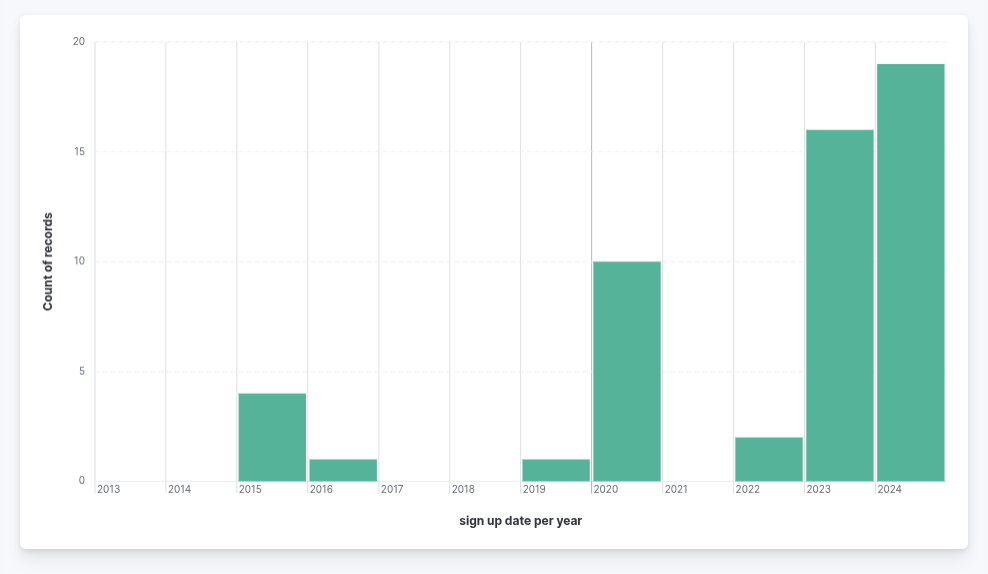Let’s set the stage. Picture a semi-governmental company. Around $130 million in annual revenue. They build and operate very expensive things — in space. Hundreds of physical hosts. Nearly 4,000 VMs. Most of their IT stack, in fact, runs on our platform.
Are they paying customers?
No.
Are they using the fully open-source version, from source?
Also no.
Instead, they discovered our Xen Orchestra Appliance (XOA): a turnkey virtual machine, with Xen Orchestra pre-installed, regularly tested, easy to deploy and update (and yes, still running fully on-prem). A supported and stable experience, designed for teams that don’t want to git pull on master branch in production.
But they didn’t want to pay for it. So they came up with a creative workaround: abusing our 30-day trial (initially 15 days until recently), over and over again.
It all started back in April 2015 — yes, a full decade ago. At first, they used their corporate emails to request trials. One here, one there. Nothing suspicious. But over the years, the pattern grew. More emails. More trials. Enough that, when we looked back, we realized we could chart it. Literally. Here’s what the “creative licensing strategy” has looked like over time:
As you can imagine, we ended up with what looked like the entire staff directory. Developers, sysadmins, managers… pretty sure we even had the janitor signed up for a trial at some point.
When those ran out, they switched to personal Outlook or Gmail addresses. Every time: starting with a new (real!) person with their… personal email, a new 30-day trial. And then go incrementally with it. [email protected], then [email protected]… We’re now well past johndoe60. Same company name, every time… which is impressive considering the field isn’t even required in order to register your account. Hard to say if it was a mistake, a flex, or just their way of making sure we didn’t miss who was milking the trials.
Yes, they’re that committed. Committed to not paying.



I’m not convinced. It all started from a license saying “if you want to distribute your version, you have to license it the same”. One either plays by the rules or the modification doesn’t see the light of day. And at the time of publication, it was rather radical stance
Freedom sometimes has to be enforced
This is not a story about a company denying free trial to another company because the latter is big. It’s about the latter leeching resources from supporters who’s money go towards the fleet that serves their 4k VM “trial”
It is against the spirit of FOSS